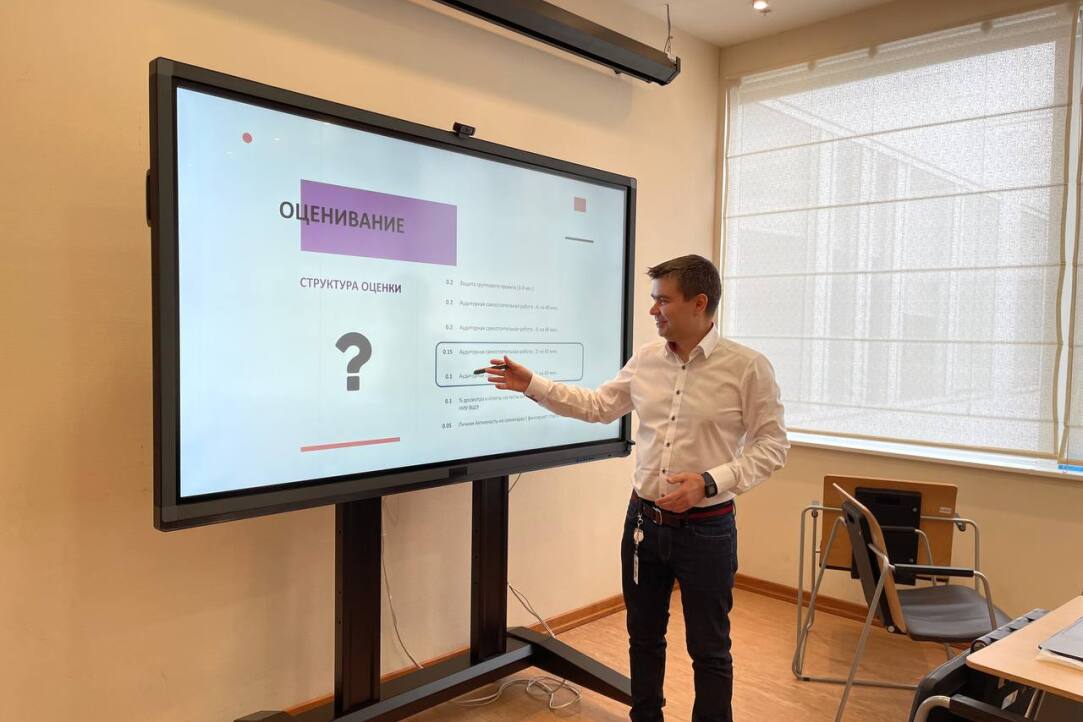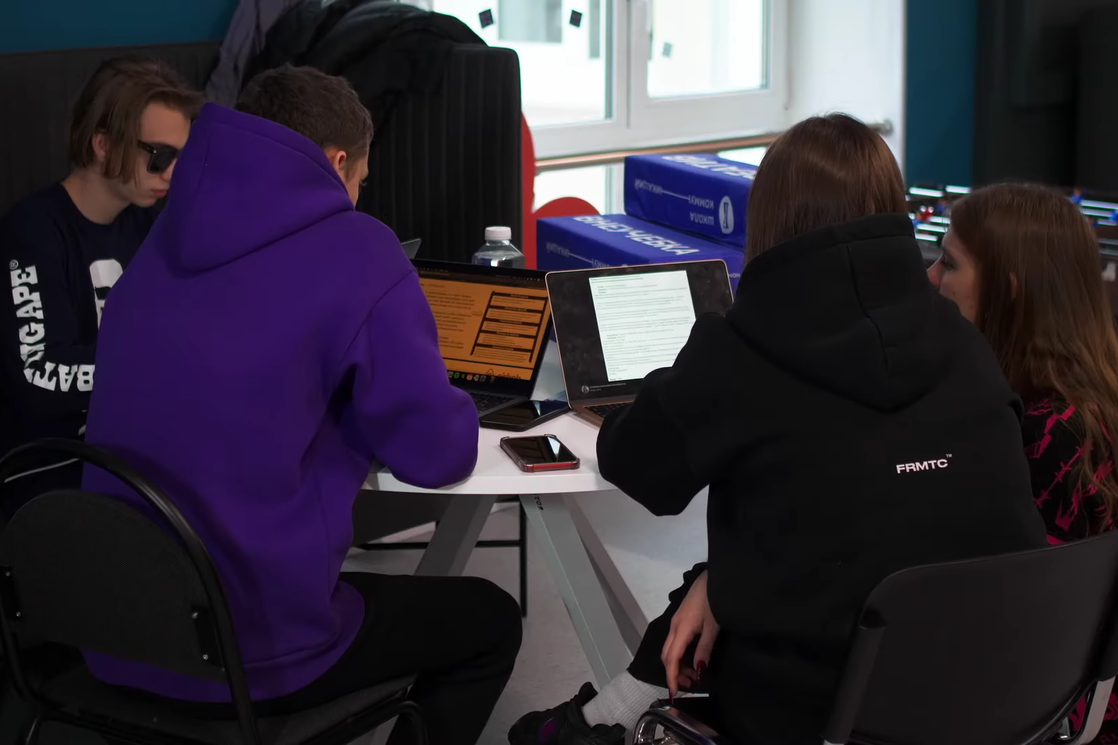‘Today’s Communication Goes beyond the Classical Application of Digital Tools’

HSE University has launched a Bachelor's Programme in Global Digital Communications. This new online programme from the School of Communication gives students meta-skills, teaches them to communicate with artificial intelligence and set tasks for it, develops critical thinking, and inspires teamwork in launching creative projects. Graduates of this course will be able to conduct analytical research using Python and SQL, as well as strategically approaching global communication tasks.
Oleg Vlades, the programme’s academic supervisor, explains why specialists in communication must be able to analyse data from the market, whether machines can generate meanings from scratch, and how the programme deals with basic communication skills.
— Artificial intelligence as a super-fast content generator has confidently entered the territory of communication experts. Does it pose a threat to professionals in this field?
— If we talk about text generation, these features are new to us. For more than a decade, the media has used technology to create automatically generated content — from stock market reports and reviews of sports matches to weather forecasts. Machines have been constantly creating more and more meaningful and complex texts. The current quality of the generated content is almost indistinguishable from that created by humans.
Not so long ago, speech recognition and its translation into text by a computer changed the need for voice recorders and transcription services forever. Current text generation models describing events can replace a stenographer who creates notes and highlights meanings in real time. The ability to write conclusions will change the need for specialists in the near future, since now a large number of people without professional training will be able to do it. The next stage of technological development may be the automatic creation of meaning from scratch. The question as to whether these meanings will have an audience, and how they will be appreciated, still remains.
Today’s communication goes beyond the classical application of digital tools.
In the 4th year of studies, we plan to offer the course ‘Communication with Artificial Intelligence’. Students will learn how to work with AI: analyse data and automate management functions, use AI tools to work with texts and graphics, apply artificial intelligence in the field of design, and master prompt engineering
Leading professionals in any industry, and communication is no exception, usually stand out because they use cutting edge tools in their work and thereby become even more efficient and productive, upgrading their skills over and over again.
— How has the digital space changed in addition to the spread of AI? What new tasks and content do digital communications specialists work with?
— The digital space is growing, and the speed of information exchange is increasing, which directly affects the type and format of content that is streamed. Also, with the growth of international cross-border communication between network users and the emergence of new entities, such as meta-spaces, there is a need to organise new interaction processes. Communication specialists must constantly master new tools. For example, the regular holding of interactive online events for 1000-2000 people has become routine, although it was a novelty a few years ago. The need to manage a completely synchronous human interaction experience is moving from computer games to the world of work communications.
— This programme is globally oriented. What features of digital communications in non-European media spaces, which Russian specialists are actively entering, can you identify?
— We give students an understanding of the uniqueness of each country in communication approaches and tools. For example, let’s speak of the United Arab Emirates market. The region has its own communication features: you will not be able to make voice calls using the WhatsApp messenger, while WhatsApp is widely used as the gold standard for communication by small companies and large corporations, but only for text communication or sending voice messages. Local messengers GoChat or Botim are widely used in the UAE, they are still unknown to Russian communication specialists, but they need to be mastered in the local media space. Such features are available in each region, and understanding them will help our students to quickly adapt to working with clients in a new information field.
— How have the tools for researching the customer journey changed in recent years and how has it affected the programme?
— The customer journey is now thoroughly studied by marketers. They measure customer behaviour on website pages, in mobile applications, in app stores, and in marketplaces. They analyse the behavior of individual user groups that manifest themselves differently in the offline space, leaving a digital footprint from the use of smartphones. This entire data set generates information about consumers. Modern labeling and attribution tools are constantly improving the methods of identifying users and their behaviour.
The programme curriculum includes courses on ‘Research and analysis of structured and unstructured data on the Internet’, ‘Customer journey research and data analysis in marketplaces and superapplications’, ‘Professional certification of Data Analytics’, which fully correspond to modern trends and needs in analytics. We teach students to visualise and interpret the collected data in manual and automatic modes.
— In addition to developing digital competencies, does the programme offer the classical skills of a communication strategist?
— Absolutely! Students study the basics of management, marketing, communication theory, advertising history, economics, branding, content production, creativity, administrative and legal regulation of communications, and reputation management. This knowledge helps them to acquire basic skills.

— How closely do students cooperate with future employers and business experts?
— Students often encounter potential employers for the first time during their classes. Most of the teachers in the programme are experts in the communications industry.
We also implement projects at the request of clients as part of both independent and group student work.
— Why is the new programme of the School of Communication implemented in an online format?
— In short, due to our experience and knowledge. We ensure the highest efficiency of online classes using modern learning technologies and control the process. In our two bachelor's offline programmes, we have successfully built upon experience gained during the pandemic. The online format included lectures, seminars, tests, group project reviews and exams. We held the first online graduation in the history of our degree programmes. We launched and successfully implemented an online master's programme.
— Do students acquire organisational and managerial skills during their studies, taking into account the remote format?
— The specifics of distance learning trains the skill of remote working. From the very first day of study, our students learn to work and complete tasks when there is no ‘controller’. Our students gain not only new knowledge, but also flexible organisational skills. We teach them to work in remote teams regardless of place and time. The ability to manage yourself, time, and members of a widespread team is extremely valuable.
— Will you hold an open day for applicants so that they can learn more about the programme?
— We’ll hold the first open day on an unusual date - February 29th, 2024 at 19:00. It will take four years before we will be able to repeat something like this, but I am sure that by this time, in addition to new applicants, current students of the online programme, who will have completed almost the entire training path from beginning to end, will join us in order to share their experience with the next generation of students.

